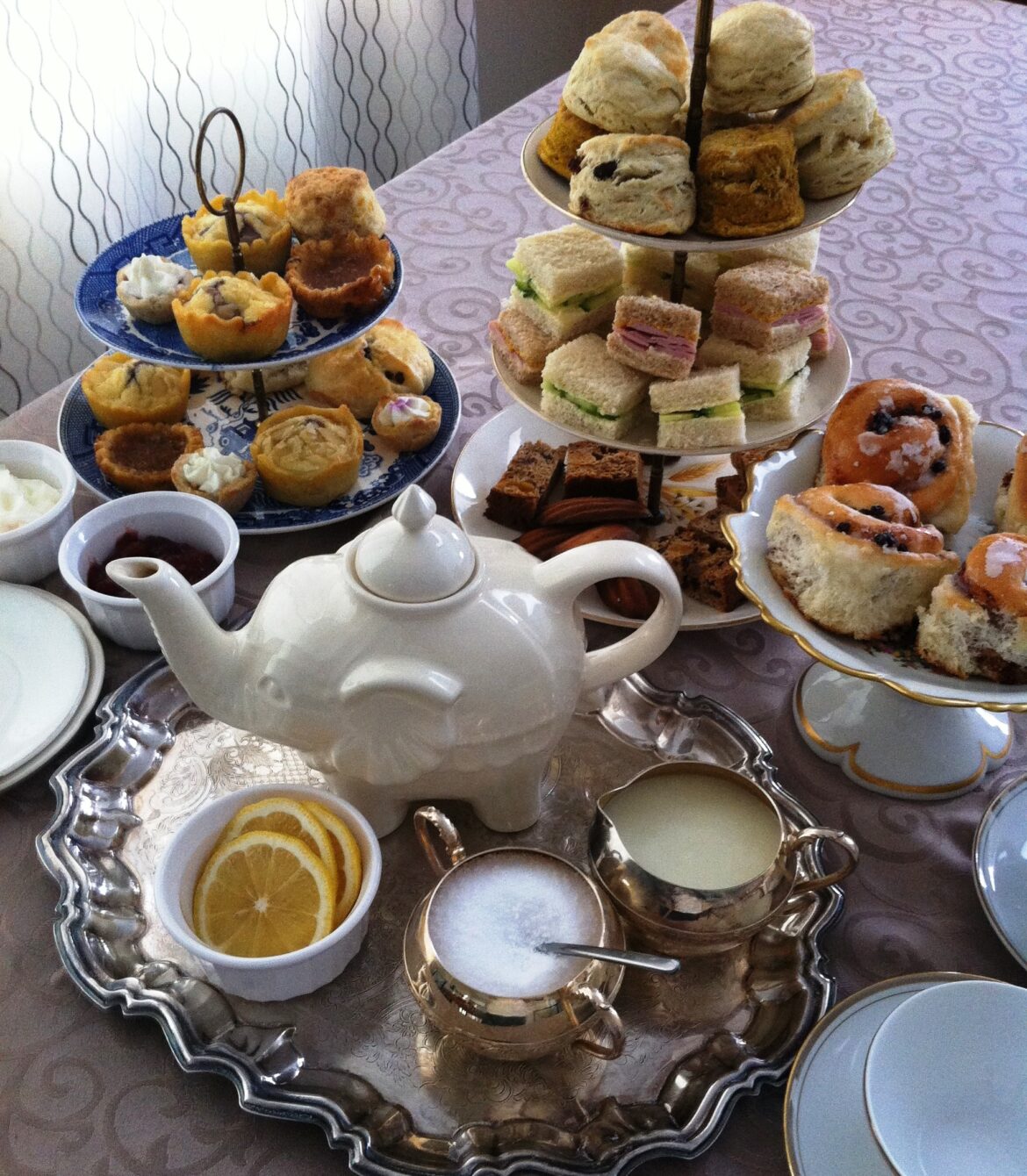Coffee or Tea? Which Will it Be?
As newly-weds, my husband and I lived in Bogota, Colombia for two years, a country renowned for its great coffee. I hadn’t acquired a taste for coffee yet, but oh, it smelled SO good! At one of my husband’s orchestral concerts, they served tiny cups of coffee at intermission, and I decided to try one. Did I mention how GOOD it smelled? The coffee was what the Colombians called tinto, and what I’ve since learned is a gigantic wallop of caffeine in a miniature cup. I don’t think I slept for a week!
Years later, we moved to Canada, where my husband performed with another orchestra. My Canadian friends introduced me to tea—not the kind that comes in little bags with dangling strings, but real, looseleaf tea, brewed in a pot. I’ve been swimming against the tide of coffee drinkers ever since.
To me, the main difference between tea and coffee is a matter of speed. We use coffee to wake up and get us going in the morning, brewing it quickly in pod machines and transporting it in large, insulated to-go cups as we race to work or drive the kids to school. We speed to the drive-through at the coffee shop and speed away. We invite friends to “grab a quick cup of coffee” with us.

Tea is entirely different. A true tea drinker seldom goes to the drive-through for a morning cup because to make tea properly takes time. First, the teapot must be warmed, then the water is boiled before being poured over the leaves. It’s left to steep for a few minutes, covered with a tea-cozy to keep it warm. Then you sit and sip from a porcelain teacup and have a leisurely talk with friends. No one invites a friend for a “quick cup of tea.”

The point of coffee is to get you going, usually at a rapid pace so you can multi-task. The point of tea is to slow you down, to relax. It’s something you linger over with good friends and maybe a tiered serving dish with tiny sandwiches and scones. We’ve all heard of tea-sandwiches but I’ve never heard of coffee sandwiches. Coffee is a fast-food, tea is a slow one. It transports us to the past, to a slower, less-demanding pace of life. And yet . . .
My newest book, “All My Secrets,” which debuted this month, takes place during the Gilded Age in the Stanhope family’s 75-room mansion. Nineteen-year-old Adelaide Stanhope lives with rules and expectations for women in her social class that are very restrictive. For example, these are some of the rules of etiquette for an afternoon tea party (borrowed from “The Essential Handbook of Victorian Entertaining” by Autumn Stephens):
- Ladies retain their hats throughout the tea, and likewise their gloves. But tea gowns may be worn without a corset.
- Request no more than one or two spoonsful of sugar with your tea. Although you may customarily take more, it is ill-bred to do so at someone else’s table.
- It is not proper to drink with a spoon in the cup, or to quite drain the cup.
- Don’t allow the spoon to clink noisily against the cup as you stir your tea.
- Do not extend your small finger upward; this bespeaks of arrogance, not refinement.
- Do not peek over the cup at others while you are sipping. Keep your eyes lowered.
- Do not overindulge. Black tea, when taken to excess, so acts on the nervous system as to produce sleeplessness and insomnia, and finally makes a complete wreck of its victim.
This is just a small sampling of the rules, but you get the picture. There are even more rules for social calls, luncheons, and dinner parties.
I’m glad we have more freedom than our Victorian ancestors did. Yet as I was writing this novel, I found many parallels to our lives in the Twenty-first Century. Young women like Adelaide—and even older women like me—face a lot of important decisions when it comes to living our best lives. What do we value the most? Love? Money? Family? Work? Faith? What compromises are we willing to make? And how does following Christ fit into it all? These are much more important decisions than whether to have coffee or tea!
The three women in “All My Secrets” are searching for guidance, just like we are. The best approach, I believe, is to let our lives be guided by scripture, not by etiquette books or popular opinion. As the Psalmist wrote, “The fear of the Lord is the beginning of wisdom; all who follow His precepts have good understanding” (Psalm 111:10). The Bible is the best handbook, the only handbook, we will ever need.
- 1105
- 26
- 0
